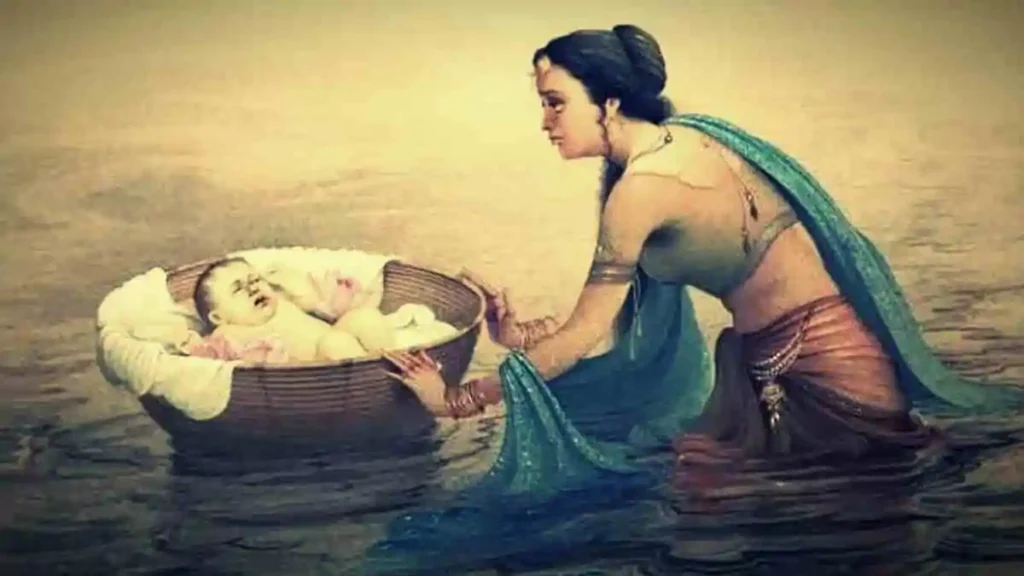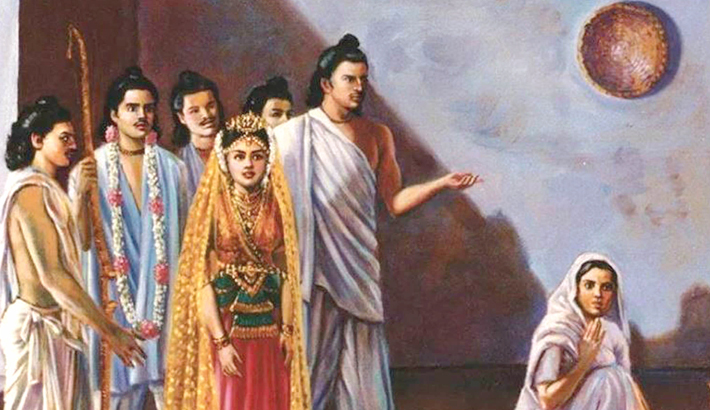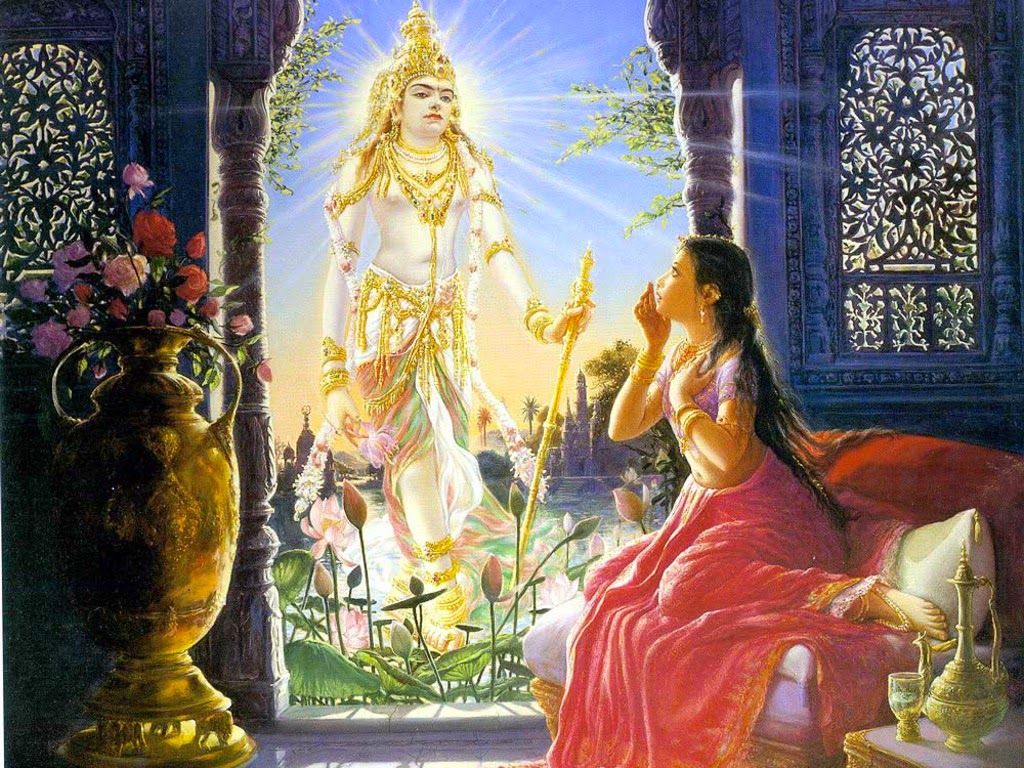The Mahabharata is a grand epic filled with warriors, kings, and divine interventions, but amid all the towering figures, one woman played a crucial yet often overlooked role—Kunti. She was not just the mother of the Pandavas; she was the silent force that shaped the course of the great war.
Born as Princess Pritha, Kunti was blessed with extraordinary wisdom, resilience, and a divine boon that would alter the fate of history. Her journey was one of sacrifice, endurance, and unwavering devotion to dharma. In this blog, we will explore Kunti’s life, her choices, and her enduring legacy in the Mahabharata.
Early Life of Kunti
Kunti was born as Pritha, the daughter of King Shurasena. However, she was given in adoption to King Kuntibhoja, from whom she got the name Kunti. Her early life was peaceful, but destiny had different plans for her.
One of the most defining moments in Kunti’s life was her encounter with Sage Durvasa. Known for his unpredictable temper, the sage was pleased with Kunti’s service and granted her a powerful boon—the ability to summon any deity and bear a child with divine attributes.

Curious and unaware of the consequences, young Kunti decided to test the boon and invoked the Sun God, Surya. Bound by divine laws, she bore a child, Karna. Unwed and afraid of societal judgment, she made the heartbreaking decision to abandon him in the river. Thisa painful sacrifice shaped her as a woman who carried the weight of her decisions with dignity and strength.
Kunti’s Marriage and Life in Hastinapura
Kunti’s life took another significant turn when she was married to King Pandu of Hastinapura. Unlike a typical royal marriage, this union was marked by tragedy. Pandu was cursed that he would die if he engaged in marital relations. Heartbroken but determined to fulfill his duties as a king, Pandu sought solace in the forest, accompanied by Kunti and his second wife, Madri.
Kunti’s boon became the only hope for Pandu to have heirs. She invoked Yama, Vayu, and Indra, giving birth to Yudhishthira, Bhima, and Arjuna, respectively. With a generous heart, she taught Madri the secret of the boon, who bore Nakula and Sahadeva through the Ashwini Kumaras.
However, fate struck again. Pandu, in a moment of weakness, tried to embrace Madri and perished due to the curse. Overwhelmed with guilt, Madri chose to commit sati, leaving Kunti alone to raise the five young princes. As a widowed mother in a male-dominated world, Kunti displayed immense courage and wisdom in guiding her sons.
Kunti’s Role in the Palace Politics and the Dice Game
Returning to Hastinapura, Kunti faced a new challenge—political turmoil. Her brother-in-law, Dhritarashtra, favored his own sons, the Kauravas, and resented the Pandavas’ claim to the throne. Kunti knew that her sons’ path would be riddled with obstacles, yet she remained their guiding light.
One of the most painful events for Kunti was the infamous dice game. She witnessed Draupadi, her daughter-in-law, being humiliated in the Kuru court. Powerless but seething with anger, Kunti stood by Draupadi and ensured that the Pandavas did not lose their resolve.

When the Pandavas were exiled for 13 years, Kunti, despite her pain, remained in Hastinapura, navigating court politics and ensuring that her sons had allies when they returned. Her endurance in the face of adversity showcased her strength and strategic mind.
The Reunion with Karna and the Tragedy of War
As the Kurukshetra war loomed closer, Kunti faced an agonizing truth—her firstborn, Karna, was on the opposing side. Torn between her love for Karna and her duty to the Pandavas, she met Karna and revealed his true identity. She pleaded with him to join his brothers, but Karna, bound by his loyalty to Duryodhana, refused.
Kunti’s silent suffering reached its peak when Karna fell on the battlefield, unknowingly killed by his own brother Arjuna. She had lost a son she never got to raise, a warrior she could never acknowledge. The weight of this loss was immense, yet Kunti bore it with her characteristic resilience.
After the war, she finally confessed the truth about Karna to the Pandavas, shaking them to the core. Yudhishthira, devastated by the revelation, blamed himself for killing his elder brother. This moment showcased the tragic consequences of fate and choices, a central theme in Kunti’s life.
Kunti’s Legacy and Lessons from Her Life
Kunti was not just a mother; she was a strategist, a protector, and a woman of immense patience. Her life offers valuable lessons:
- Strength in Adversity: Kunti faced every hardship with unshakable resolve. She teaches us that true strength is not about avoiding struggles but enduring them with grace.
- The Complexity of Motherhood: She loved all her children but had to make difficult choices. Parenting is not always about fairness; sometimes, it’s about making the hardest decisions with love.
- Wisdom and Strategy: Kunti’s ability to navigate palace politics, guide her sons, and make difficult decisions made her a formidable figure in the epic.
- Letting Go and Seeking Peace: At the end of her life, Kunti renounced the world, choosing a life of spiritual solitude. She teaches us the importance of knowing when to let go and seek inner peace.
Her character is a testament to the power of quiet resilience. Unlike the warriors on the battlefield, she fought a different kind of war—one of survival, sacrifice, and patience.
Kunti’s journey in the Mahabharata is one of silent strength. From an abandoned young mother to the matriarch of the greatest dynasty, her story is woven with sacrifice, wisdom, and duty. She shaped the future of Bharatavarsha without ever wielding a weapon, proving that power isn’t always about physical strength but about inner fortitude.
Even today, Kunti remains an inspiration for those who face difficult choices in life. Her story tells us that even in the darkest times, one can endure, adapt, and emerge stronger. Whether as a mother, a leader, or a seeker of truth, Kunti’s legacy continues to shine through the ages.

